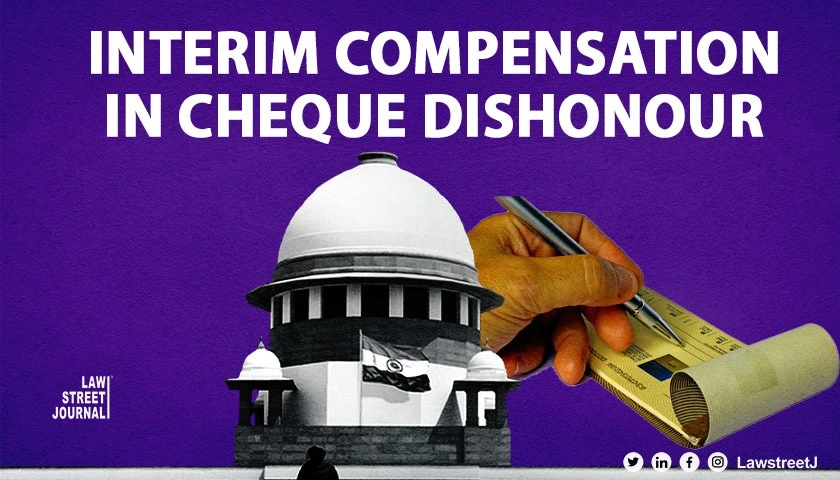NEW DELHI: The Supreme Court has said power to grant interim compensation in cheque bounce case under sub-section (1) of Section 143A of the Negotiable Instruments Act is discretionary and directory and not mandatory.
The court said that making the provision as mandatory for an accused to pay interim compensation in such cases to complainant even before holding him guilty would have unjust and drastic consequences, affecting the well settled concept of fairness and justice.
"We have no manner of doubt that the word may used in Section 143A of the Negotiable Instruments Act, cannot be construed or interpreted as shall. Therefore, the power under sub-section (1) of Section 143A is discretionary," a bench of Justices Abhay S Oka and Ujjal Bhuyan said.
The court said under Section 143A, the power to grant interim compensation can be exercised even before the accused is held guilty. It provided for passing a drastic order for payment of interim compensation against the accused in a complaint, even before any adjudication is made on the guilt of the accused and this power can be exercised at the threshold even before the evidence is recorded, it noted.
"If the word may (as is in the provision) is interpreted as shall, it will have drastic consequences as in every complaint, the accused will have to pay interim compensation up to 20 % of the cheque amount. Such an interpretation will be unjust and contrary to the well-settled concept of fairness and justice. If such an interpretation is made, the provision may expose itself to the vice of manifest arbitrariness. The provision can be held to be violative of Article 14 of the Constitution," the bench said.
The bench also said court will have to prima facie evaluate the merits of the case, and consider financial distress of the accused, before making a direction to pay interim compensation.
The court set aside a Jharkhand High Court's order directing an appellant-accussd Rakesh Ranjan Shrivastava to pay Rs 10 lakh as interim compensation to accused in a case of dishonour of cheque. It directed the judicial magistrate to examine the matter afresh after due application of mind.
In its judgement, the court made broad parameters for exercising the discretion under Section 143A:
i. The Court will have to prima facie evaluate the merits of the case made out by the complainant and the merits of the defence pleaded by the accused in the reply to the application. The financial distress of the accused can also be a consideration.
ii. A direction to pay interim compensation can be issued, only if the complainant makes out a prima facie case.
iii. If the defence of the accused is found to be prima facie plausible, the Court may exercise discretion in refusing to grant interim compensation.
iv. If the Court concludes that a case is made out to grant interim compensation, it will also have to apply its mind to the quantum of interim compensation to be granted. While doing so, the Court will have to consider several factors such as the nature of the transaction, the relationship, if any, between the accused and the complainant, etc.
v. There could be several other relevant factors in the peculiar facts of a given case, which cannot be exhaustively stated.















